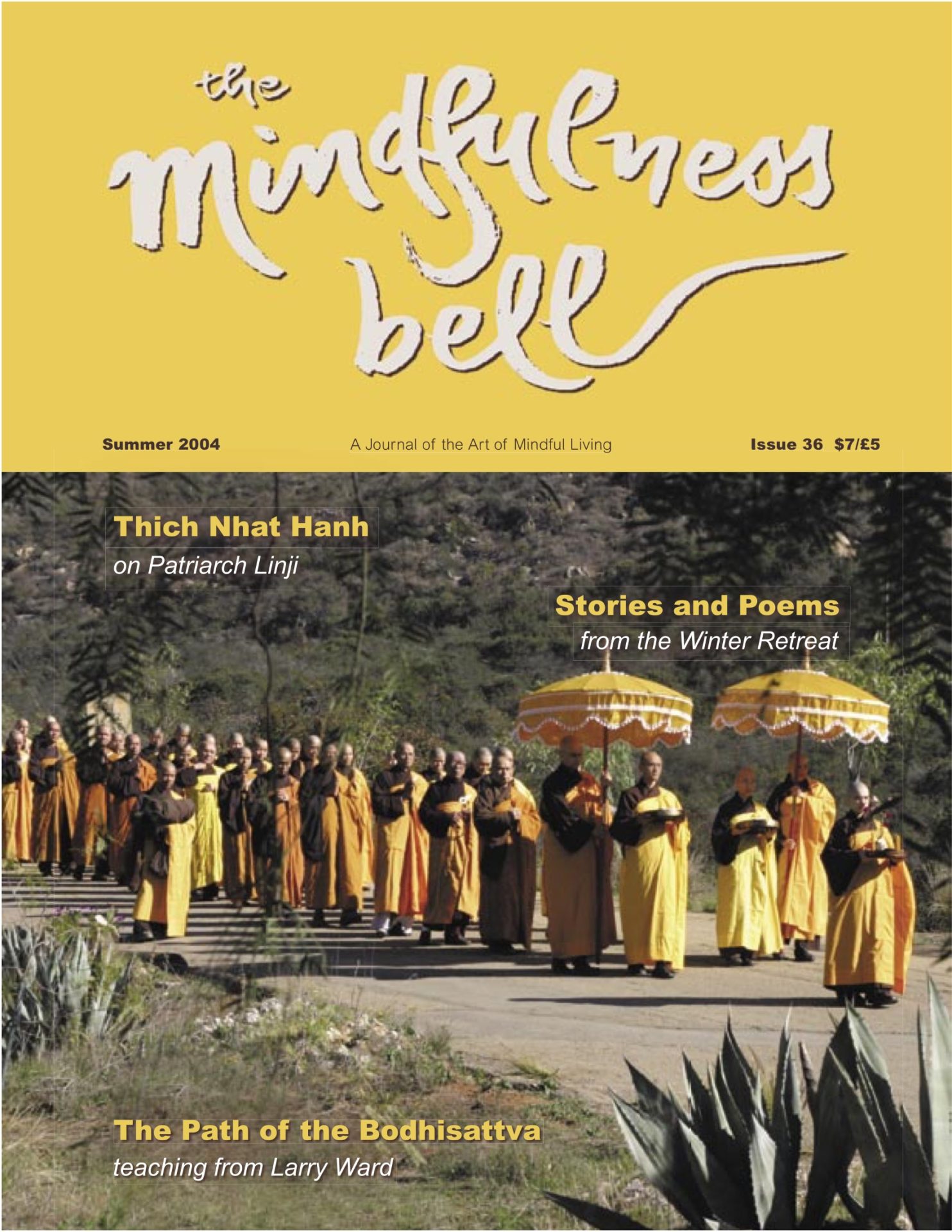By Peggy Rowe Ward
On Thay’s 2003 author tour of South Korea, one of the stops was to the city of Daegu. Before we arrived, a man had started a fire in a crowded subway that contributed to the death of over 130 people and the wounding of 140 men, women, and children. At the time of our visit, rescue workers were still searching for the remains of additional victims.
By Peggy Rowe Ward
On Thay’s 2003 author tour of South Korea, one of the stops was to the city of Daegu. Before we arrived, a man had started a fire in a crowded subway that contributed to the death of over 130 people and the wounding of 140 men, women, and children. At the time of our visit, rescue workers were still searching for the remains of additional victims. Some of the families of the victims had moved into the fire-damaged section of the subways. The downtown streets were closed so we were able to walk and chant in the subways. Following is an entry in my journal:
“We step off the bus. I sense her immediately— Avalokiteshvara, the Bodhisattva of Great Compassion, is here. I feel a great sense of relief as we walk rapidly into the crowded downtown street. She is here, in the citizens of Daegu. Thousands of people fill the streets. Monks in light grey vests with balloon type pants, Buddhist sisters in grey and bronze robes, hundreds of Catholic sisters, small women in navy with white headdresses like sun visors.
Avalokiteshvara helps us part the crowd. She is standing on the dragon boat, streamers flying from her long black hair, the wind moving her hair like ribbons. We’re riding a wave on the back of a dragon boat. In, out, step, step.
“We join the throng, walking step by step, feeling the breeze in our face, the rhythm of the wave and the cadence of our steps. Rescue workers, volunteer food servers, businessmen in dark suits, women in pastel jackets. The grey-robed monks are clicking prayer beads. Large piles of dried white football mums line the streets.
“I hear Hai-Jin ask the brother, ‘Are you sad?’ Her eyes search his face for some kind of answer. He answers her, ‘Yes,’ and with that ‘yes’ he shows her his pain, his sadness spills into the space between us. Somehow this seems to ease her mind in some deep way. Her body softens and I notice her outbreath. I see her stumble and reach for her hand. Together we ride the wave, step by step, holding hands.
“We are stopped. It feels like we have reached an invisible wall. There is a heaviness, a darkness. Despair. It is mind numbing. It is palpable. A wall of grief. In one breath I feel fear. The child in me cries out and says, ‘Stop, do not go any further.’ And in that next instant I suddenly feel her—Kshitigarbha, the bodhisattva that rescues beings from the greatest suffering, is holding my hand.
“We go as a river. We are a river. Somehow this river moves down below the street. As a Sangha, we enter into hell. There is no light. There is only darkness. Then I see with Kshitigarbha’s eyes. There is a shimmering light everywhere. There is nowhere that light is not present.
“We walk on. We are one body. We move past family shrines. Candles flicker on faces of children, sons, daughters, parents, grandparents. We are here with the altars of teddy bears, baseball caps, beautifully arranged plates of fruit, the favorite foods of loved ones. There are posters of our beloveds over the shrines—young women in prom dresses, small soccer players, proud policemen, babies in christening robes. There are zip-lock bags with human hair and bone shards, all that remains of my daughter, my sister. Family members are draped over their shrines. Some are slumped and sleeping in front of votive candles. Many are crying. Some are wailing. Some seem frozen in time. Rescue workers with navy blue cups, hand out mugs of soup. People pass large white mums into our hands. They want to touch us. The Korean sister tells us they are saying we are angels. I’m uncomfortable at first, and then I give in to being an angel that day. How could I not be a blessing? My hand seems to float on its own toward the person on my left side. I gently rest my palm on the dark hair of my brother, my sister, as we become one heart of deep blessing.
Peggy Rowe Ward, True Original Source, is a Dharma teacher living in Asheville, North Carolina.

